From Deutschland 83 to HBO’s Chernobyl, “Ostalgie” — which is what the Germans call nostalgia for the communist era — has become a trend in period and alternate-history fiction.
There are many variations of this. There is “Yugo-nostalgia” in the former Yugoslavia, Soviet nostalgia in Russia, and “Communist chic” in the West.
Here is an overview of the best productions.
Good Bye, Lenin!
Wolfgang Becker’s Good Bye, Lenin! (2003) probably started the trend.
In the movie, a dedicated socialist woman suffers a heart attack and falls into a coma just before the Berlin Wall is torn down. When she wakes up a year later, her family fears that the shock of learning the truth might give her another heart attack and they pretend communism never collapsed. They retrieve their East German furniture from storage, dress in their old clothes and repackage new Western food in familiar East German jars.
The movie was well-received by critics, nominated for a BAFTA Award and a Golden Globe, and it won various German and European film awards.
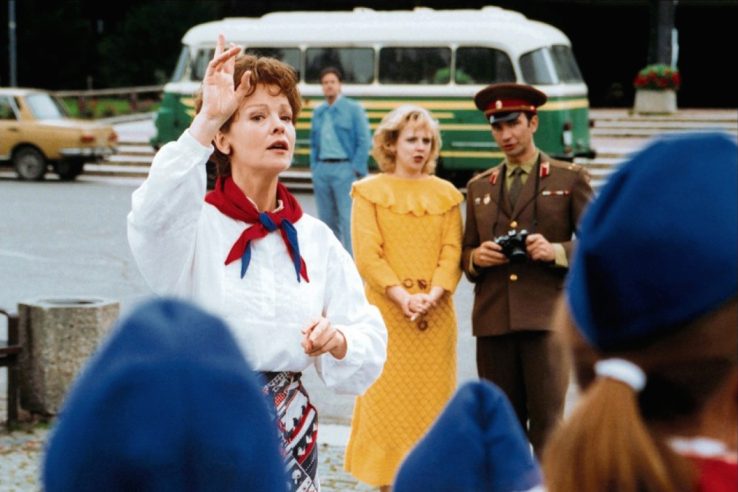
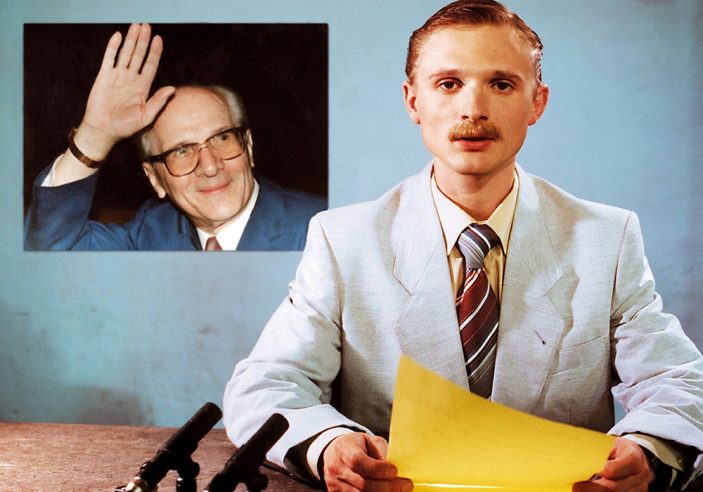
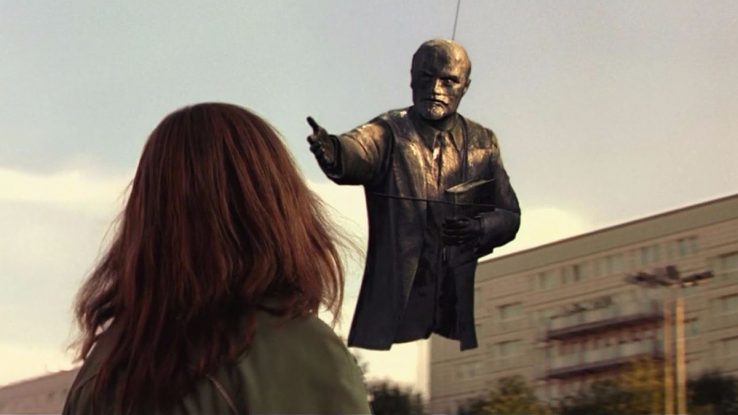
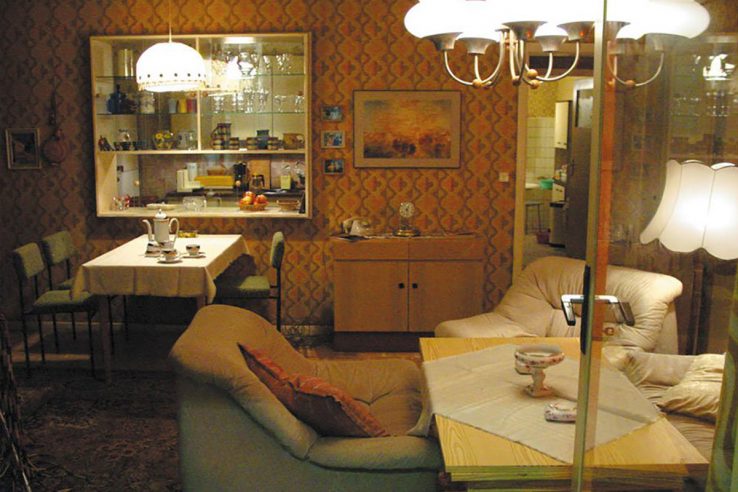
The Live of Others
The most successful German film of recent years, Das Leben der Anderen (The Lives of Others, 2006) was almost universally praised and won the 2006 Oscar for Best Foreign Language Film.
Set in 1984 East Germany, it follows Stasi agent Gerd Wiesler (Ulrich Mühe) as he spies on a playwright played by Sebastian Koch.
Florian Henckel von Donnersmarck, who would go on to make Never Look Away (see below), wanted to shoot at the actual Stasi Hohenschönhausen prison in Berlin, but the director of what is now a memorial refused, objecting to Von Donnersmarck’s humanization of a member of the infamous East German secret police.
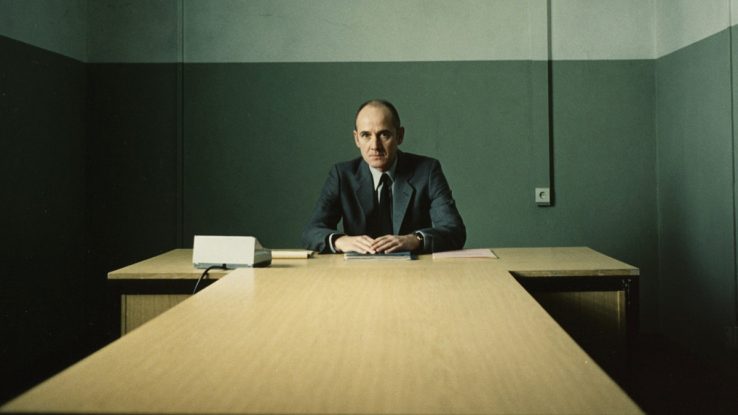
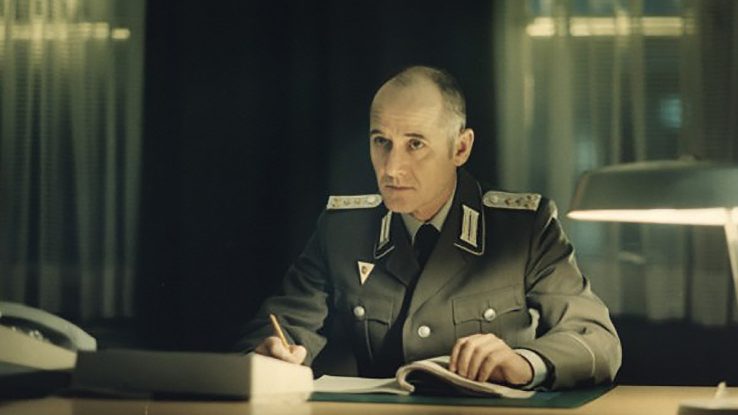
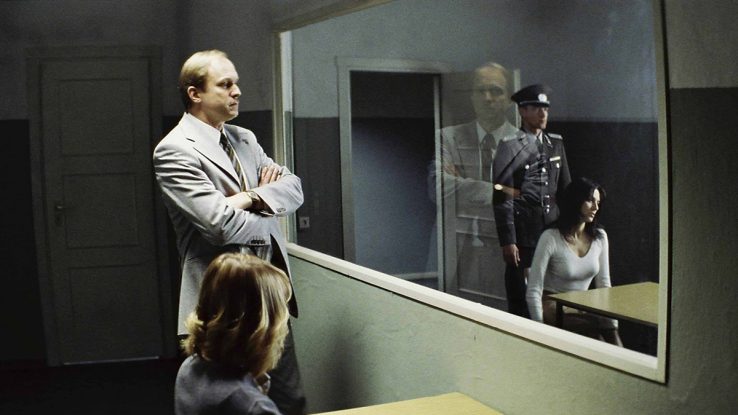
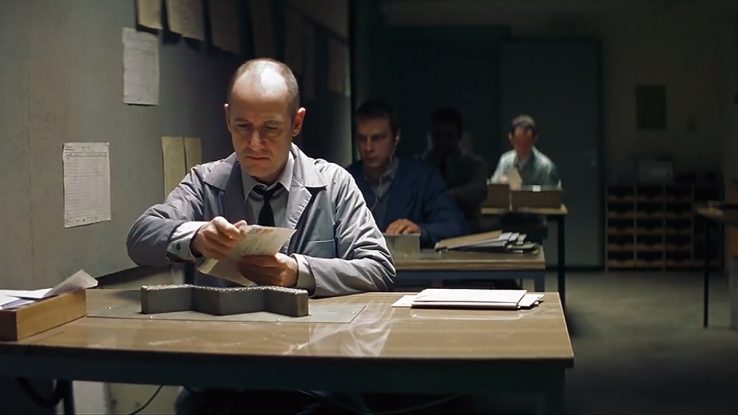
Deutschland 83
Deutschland 83 (2015, our review here) was Germany’s answer to The Americans. Where the latter follows two well-trained KGB “illegals” in the United States, Deutschland 83 centers on a young East German border guard (Jonas Nay) who is unwillingly thrust into the middle of a nuclear standoff.
Set against the backdrop of Ronald Reagan’s “evil empire” speech, which convinced the Soviets that an American first strike was possible, and NATO’s decision to deploy Pershing II missiles in Western Europe to offset the East Bloc’s SS-20s, which triggered mass peace demonstrations, Deutschland 83 does a fabulous job recreating the look and feel of the late Cold War.
The series initially got weak ratings in Germany, but it found critical acclaim and popularity abroad. In Britain, it became the most-watched foreign-language drama ever.
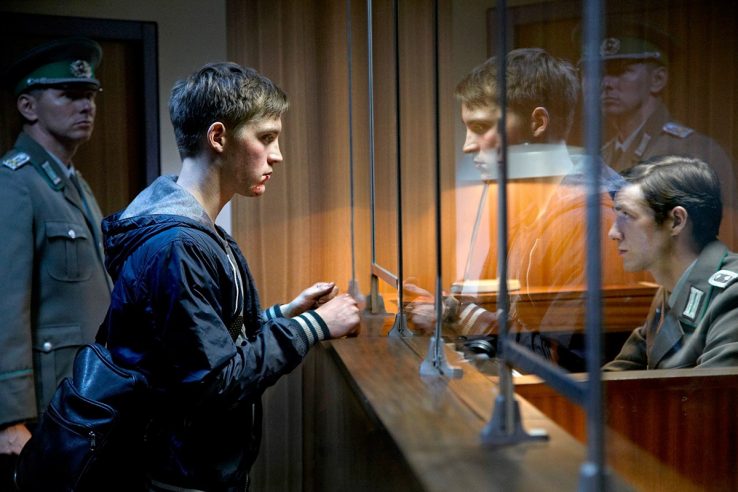
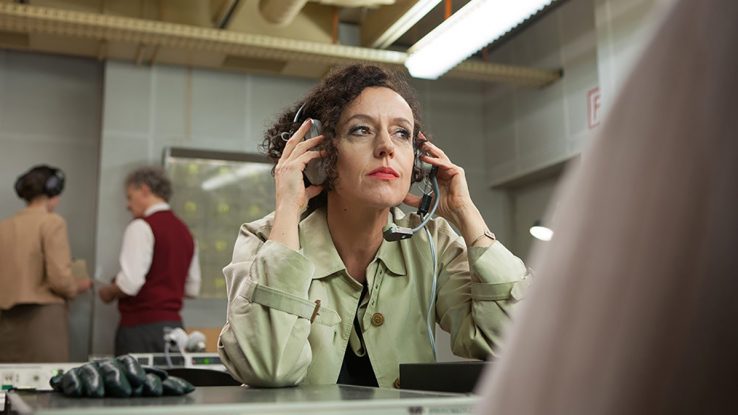
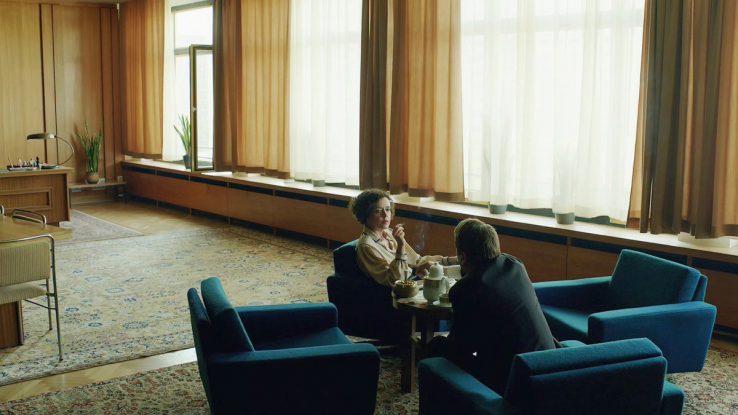
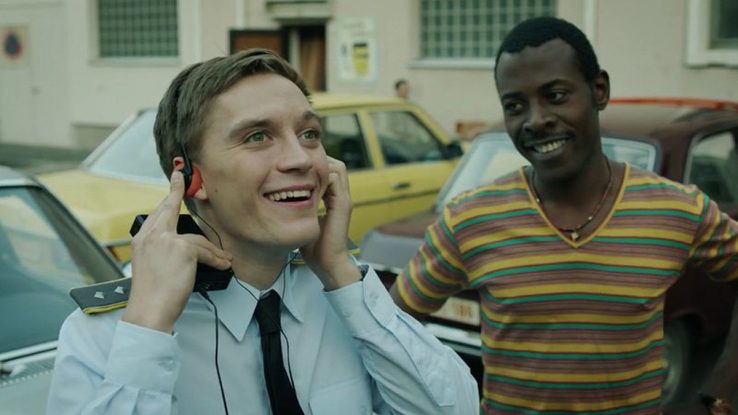

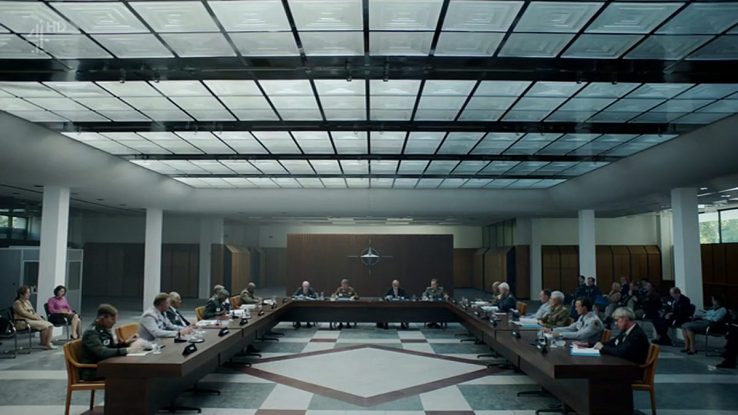
A sequel, Deutschland 86, was aired in 2018 and focuses on East German relations with the apartheid government of South Africa. A third series, Deutschland 89, is coming.
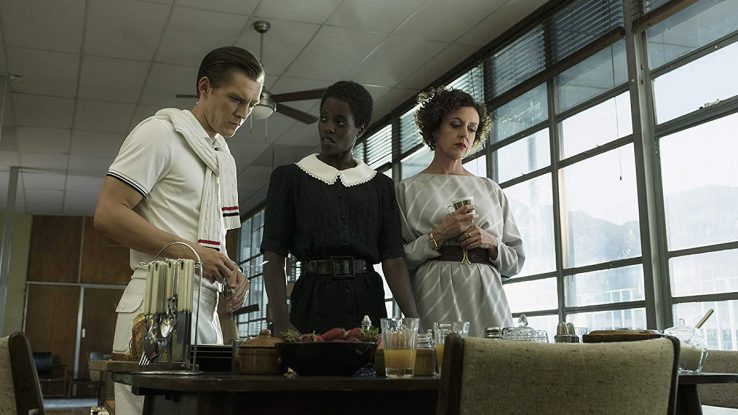
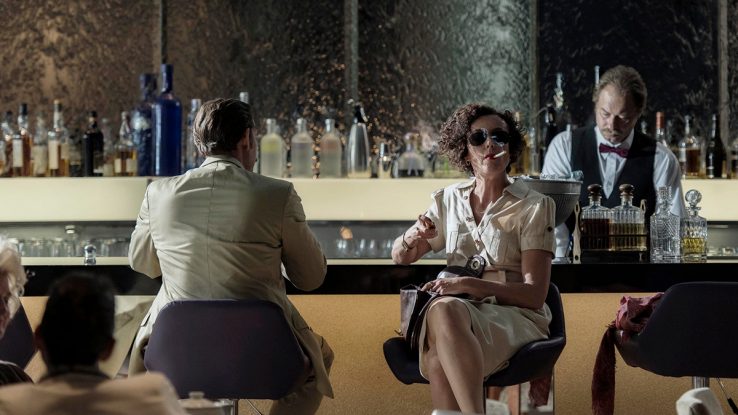

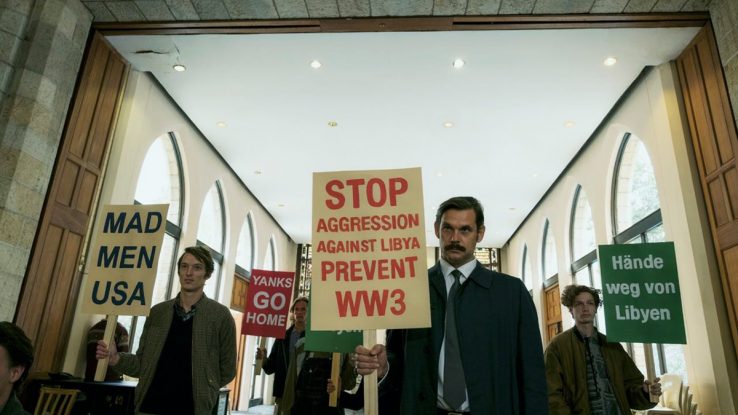
Houston, We Have a Problem!
This brilliant mockumentary by Slovenian director Žiga Virc (2016) purports to reveal the history of the Yugoslav space program.
Josip Broz Tito, keep to inject Yugoslavia into the American-Soviet Space Race, supposedly set up the program and then sold it to John F. Kennedy for $2.5 billion (around $50 billion in today’s money). According to the film, the money was used to fund Yugoslavia’s 1960s economic boom (which in reality was driven by liberalization).
The problem: the Yugoslav technology didn’t produce the promised breakthrough in the American space program. Tito refused to pay back the money, leading to American blackmail and threats, culminating in a CIA plot that triggered the violent breakup of Yugoslavia.
Cold War
Pawel Pawlikowski’s Cold War (2018) follows the life of two Polish artists (played by Tomasz Kot and Joanna Kulig) as they struggle with censorship and political pressure in communist Poland and flee to Paris.
The movie was almost universally praised by critics and won Best Director at the Cannes Film Festival in addition to various European awards.
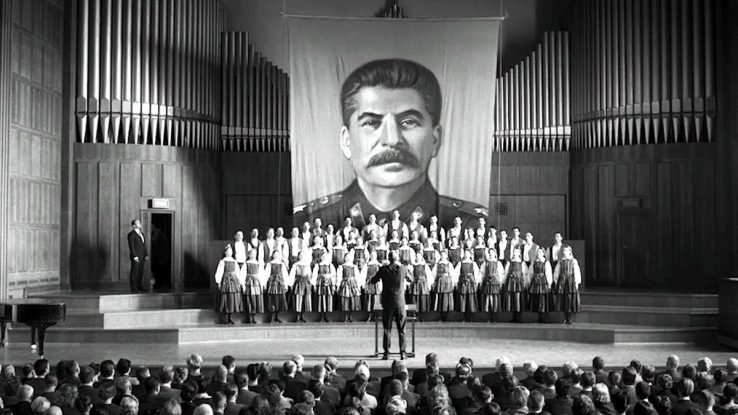

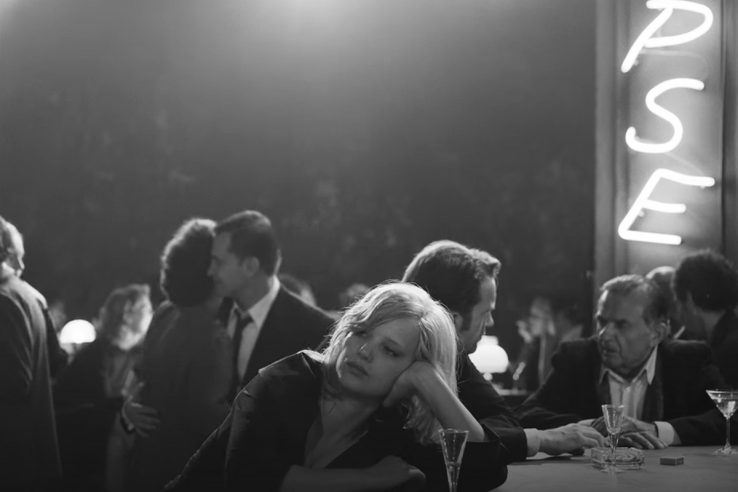
Never Look Away
Never Look Away (2018) is the story of an artist (Tom Schilling) who grows up under Nazi rule and ends up living in East Germany, where he is forced to paint in a socialist realist style he despises. He flees to the West, but can’t find his place in the art community there either.
The movie won first place at the Venice International Film Festival, where it was first screened, and has since received mostly positive reviews.
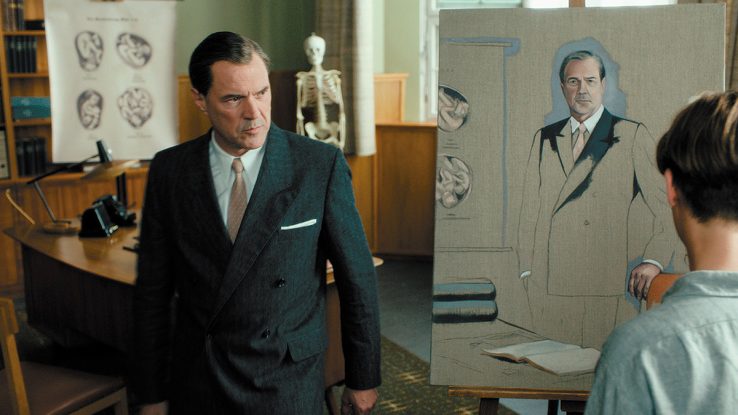
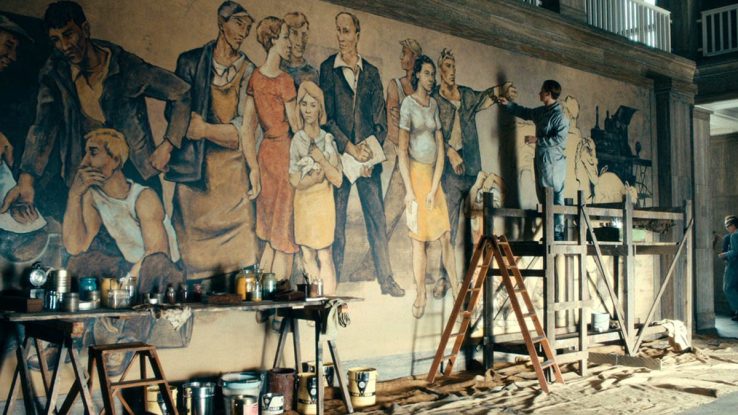
1983
1983 (2018) is a Polish series streaming on Netflix. The title refers to the year in which a terrorist attack took place in Poland, changing the course of history.
It is now 2003, Poland is still communist, and a law student (Maciej Musial) and a police detective (Robert Wieckiewicz) uncover a conspiracy that has tyrannized the country for decades.
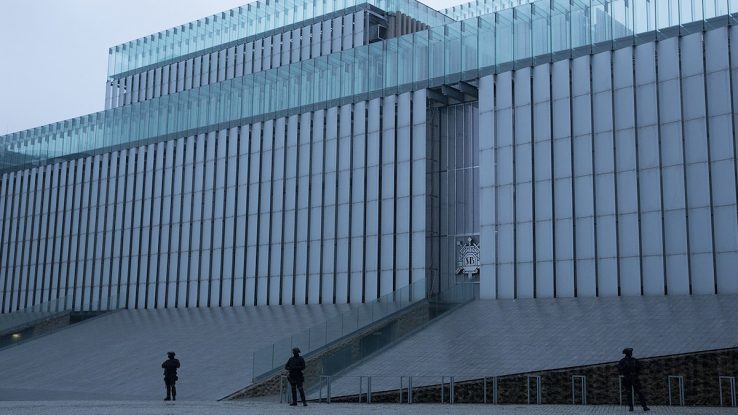
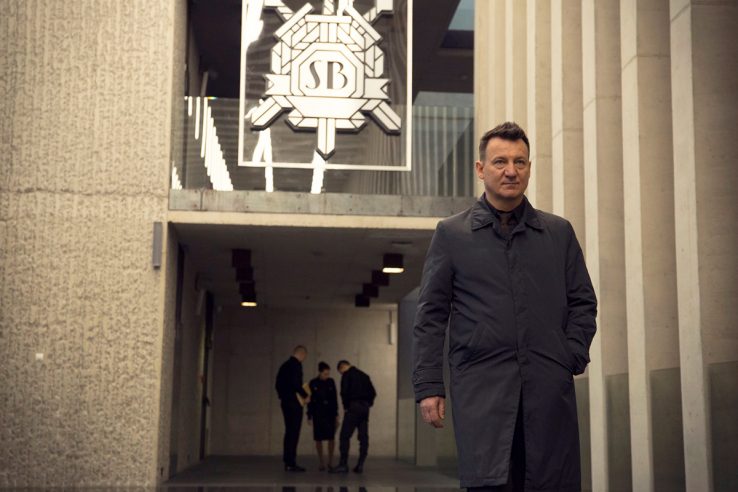
Chernobyl
Probably the biggest Ostalgie hit so far, HBO’s Chernobyl (2019) dramatizes the 1986 nuclear power plant disaster with starring roles for Jared Harris as Valery Legasov, the deputy director of leading Russia’s atomic energy institute, and Stellan Skarsgård as Boris Shcherbina, vice chairman of the Soviet Union’s Council of Ministers, who oversaw the cleanup effort.
The contribution of other nuclear physicists is recognized through the fictional character of Ulana Khomyuk, played by Emily Watson.
Chernobyl’s sister plant, Ignalina in Lithuania — in the process of being decommissioned — stood in for the real thing in the series. Scenes in Pripyat, now an off-limits ghost town, were filmed in a Soviet-era suburb of the Baltic state’s capital, Vilnius.
The miniseries has received almost unanimous praise from reviewers and has been nominated for numerous awards.
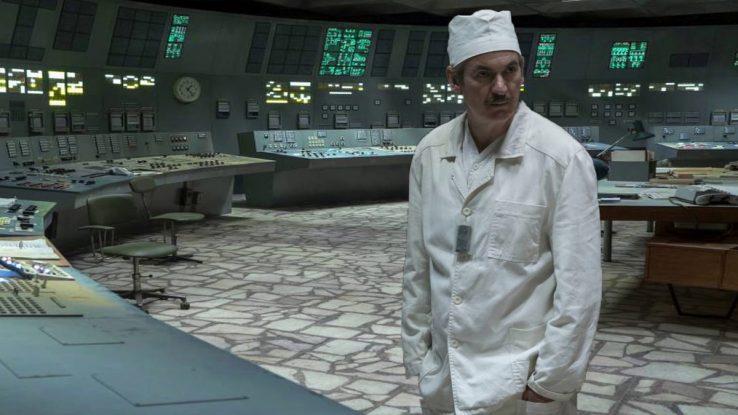
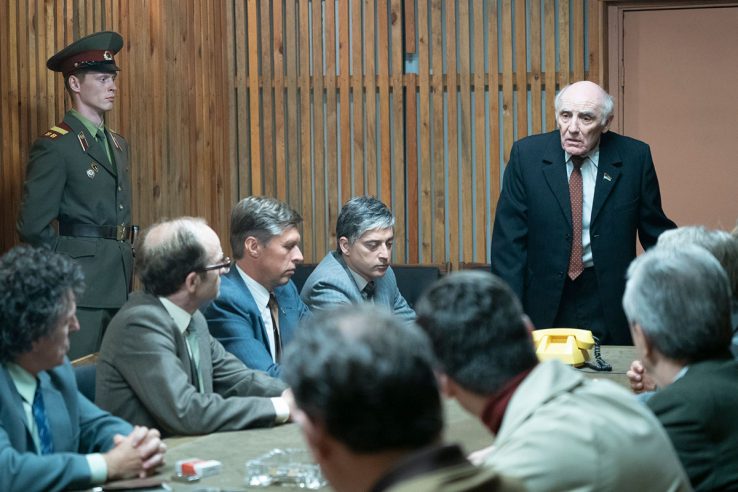
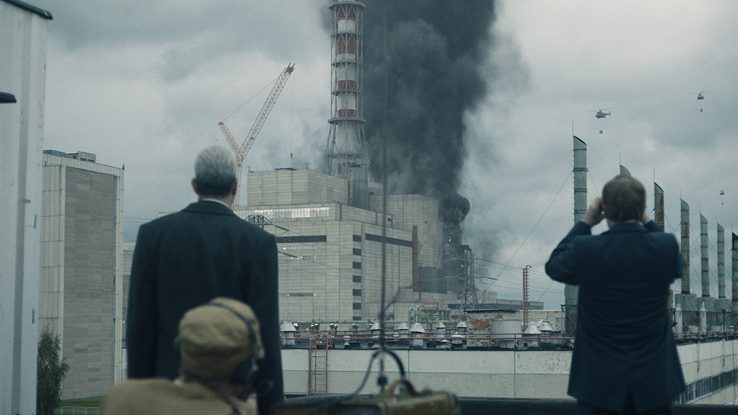
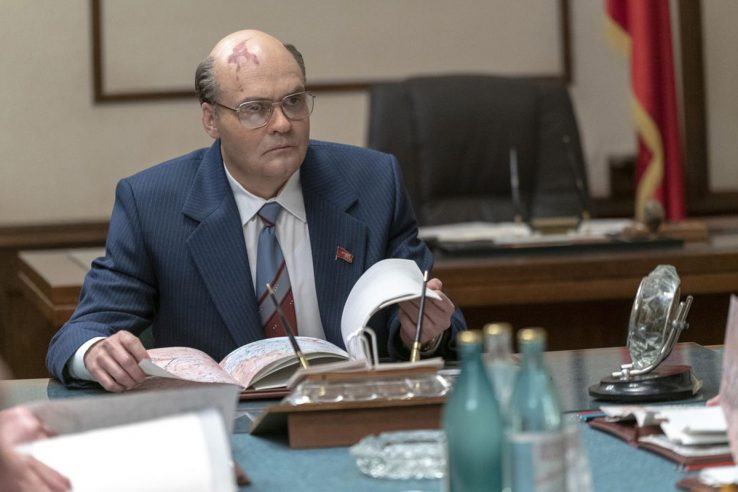

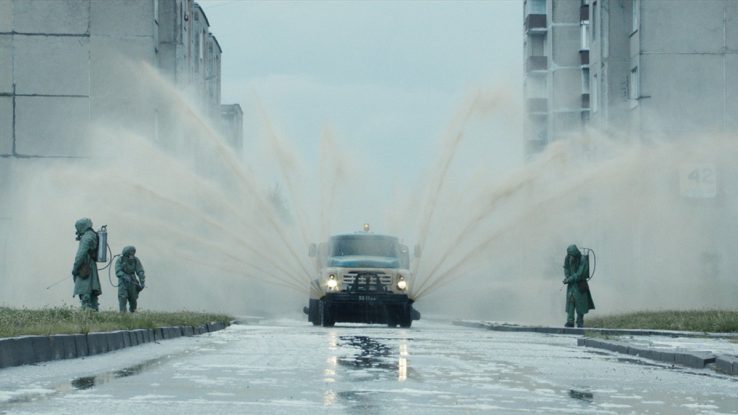

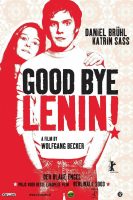





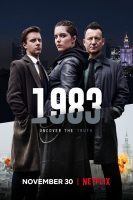

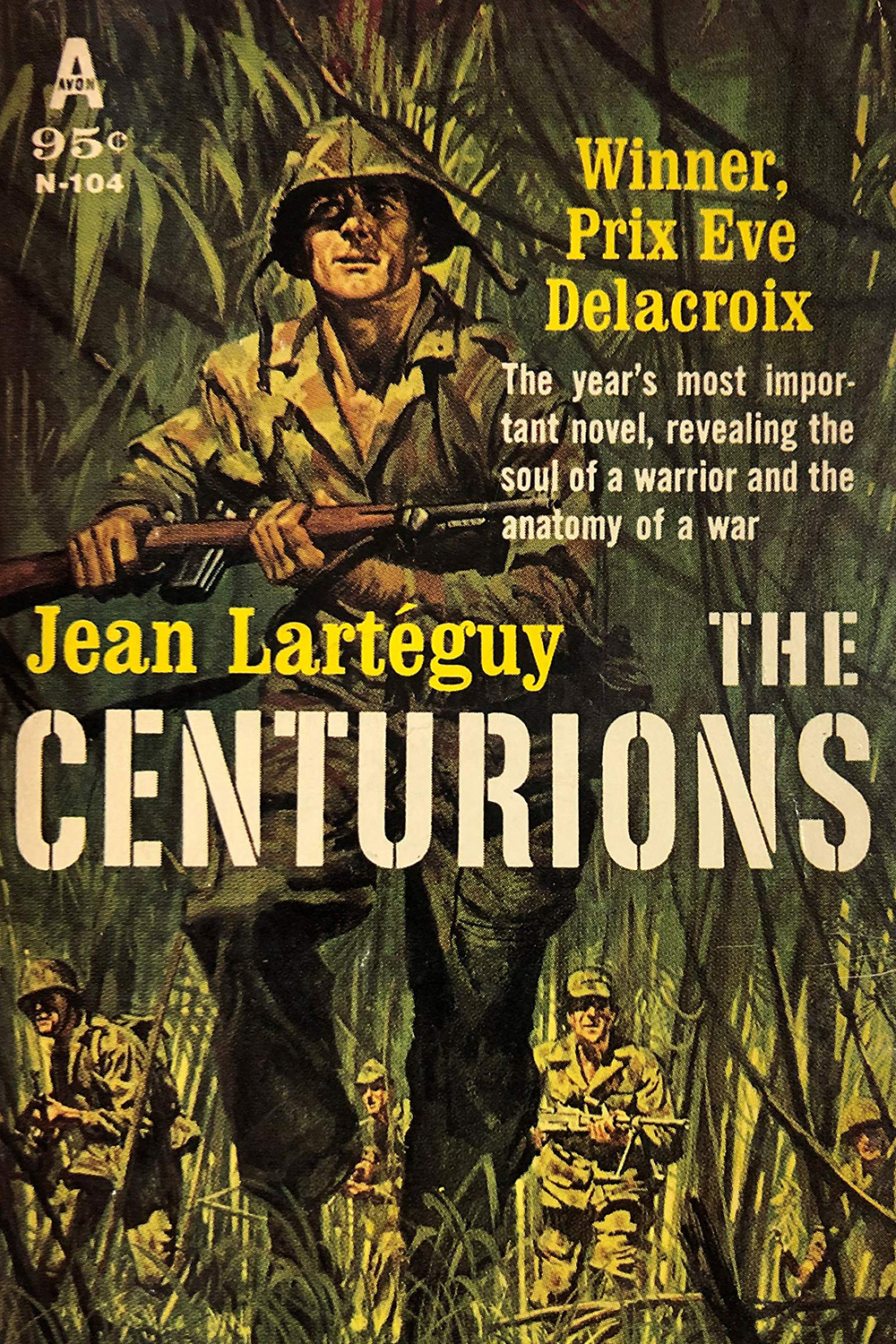
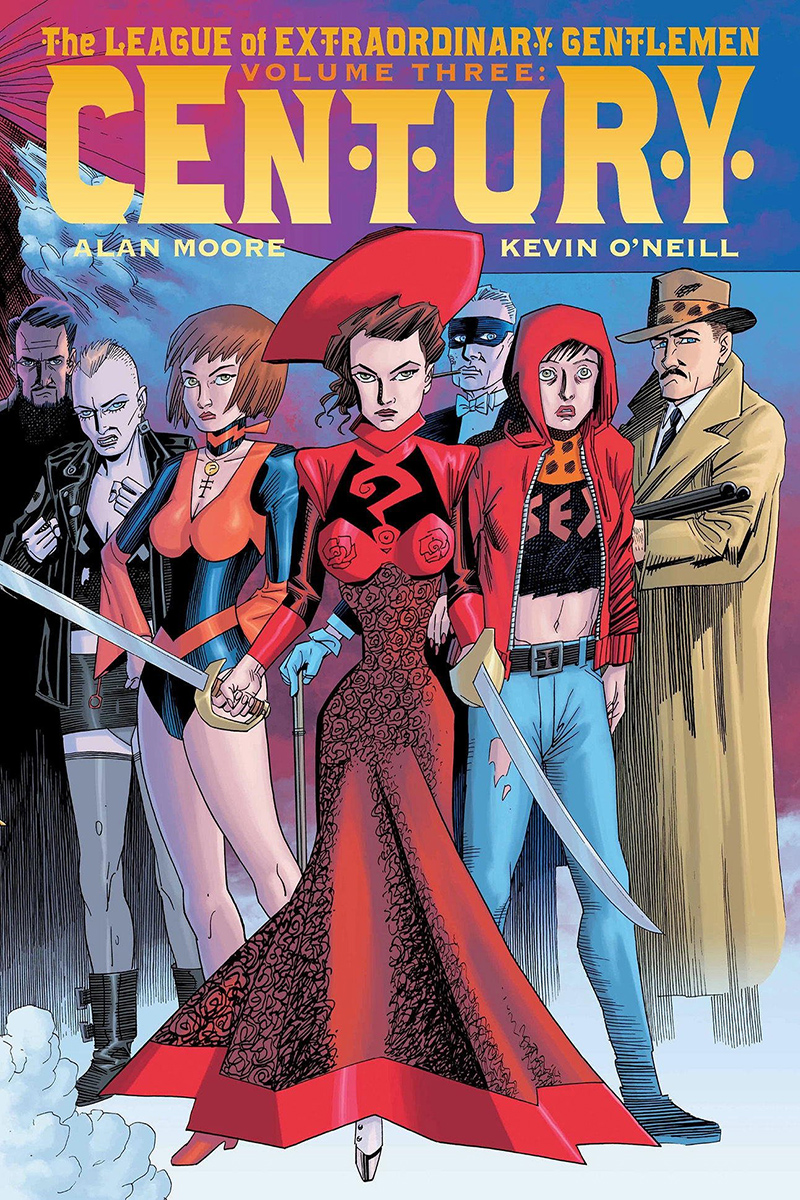
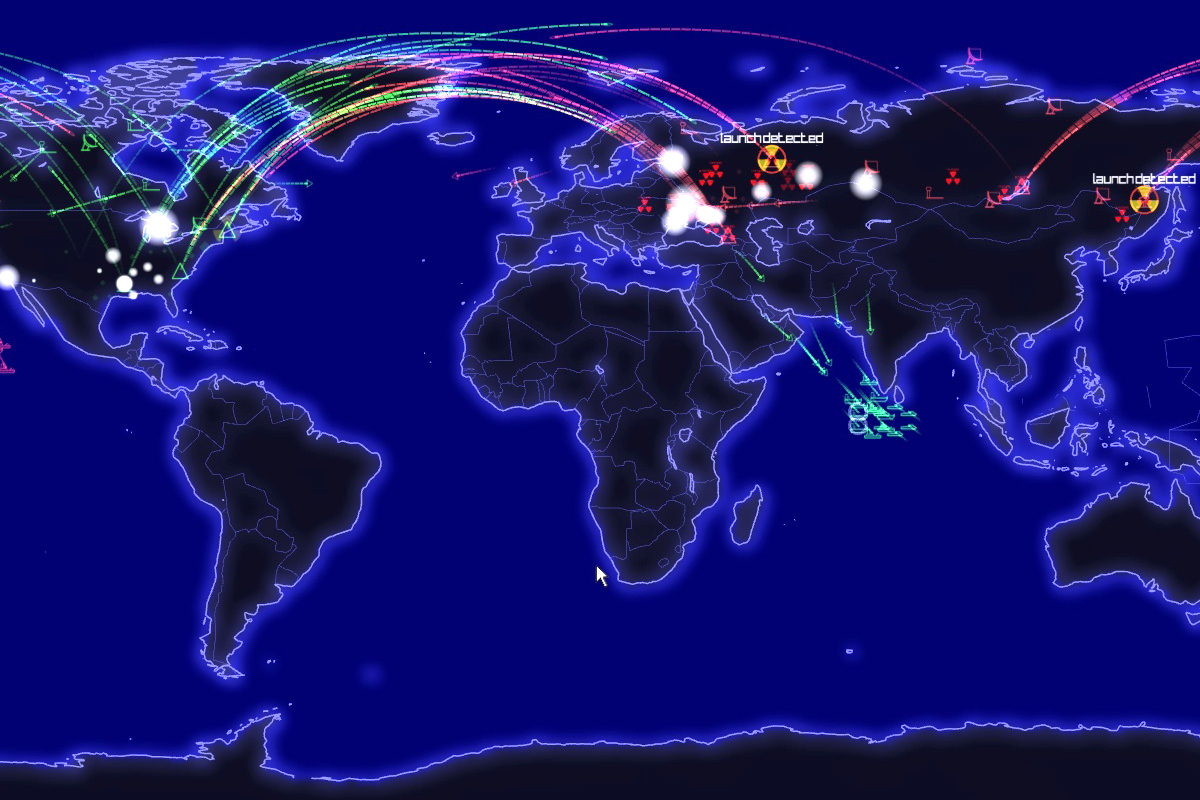
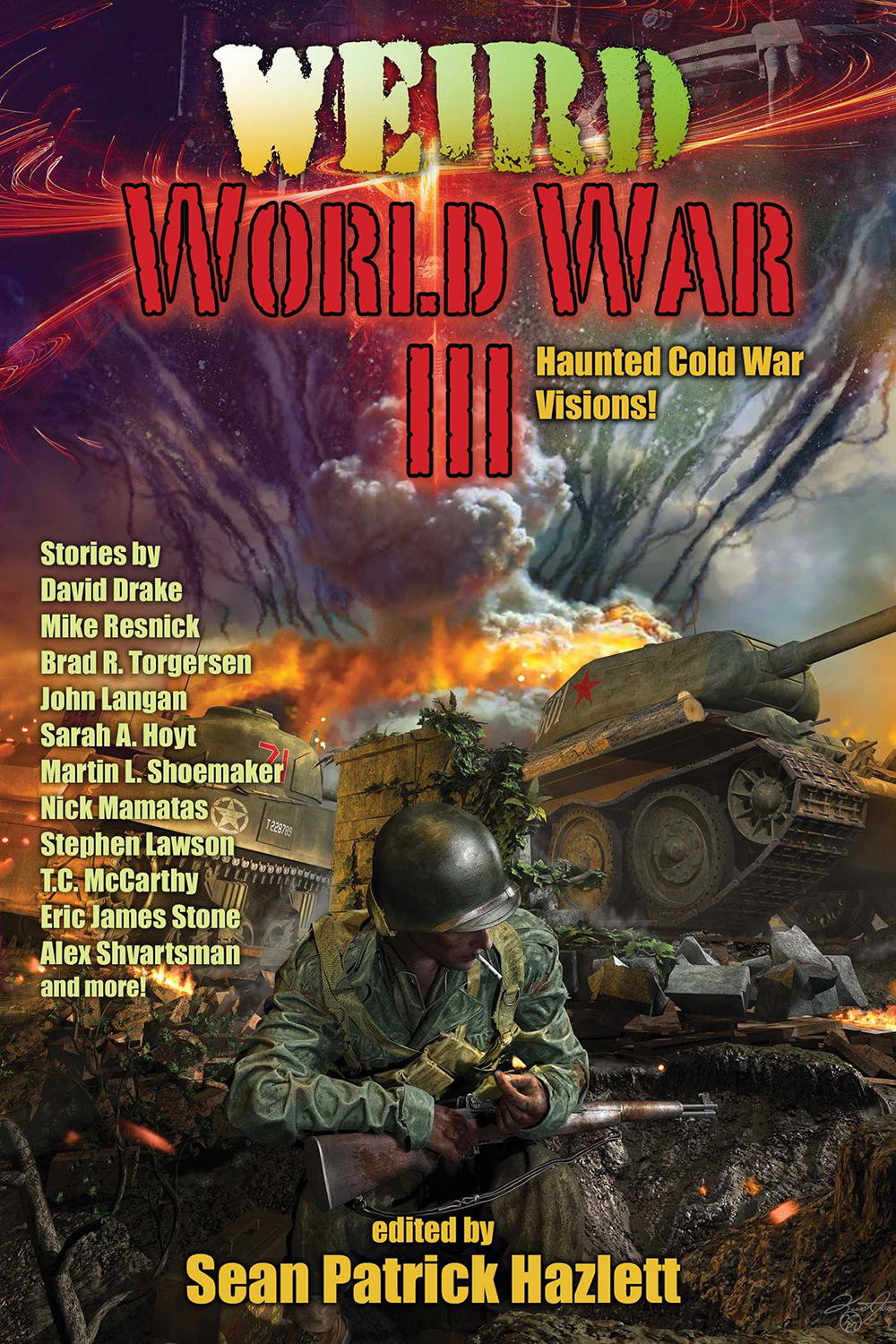
2 Comments
Add YoursI need to watch several of these. I love the nostalgia. Chernobyl was frightening yet well done.
My top recommendation would be Deutschland 83.
I’ve been aching to see the second series, Deutschland 86, but unfortunately it doesn’t seem to be available with English subtitles here in Spain. (It’s not included in the Spanish version of Amazon Prime.)